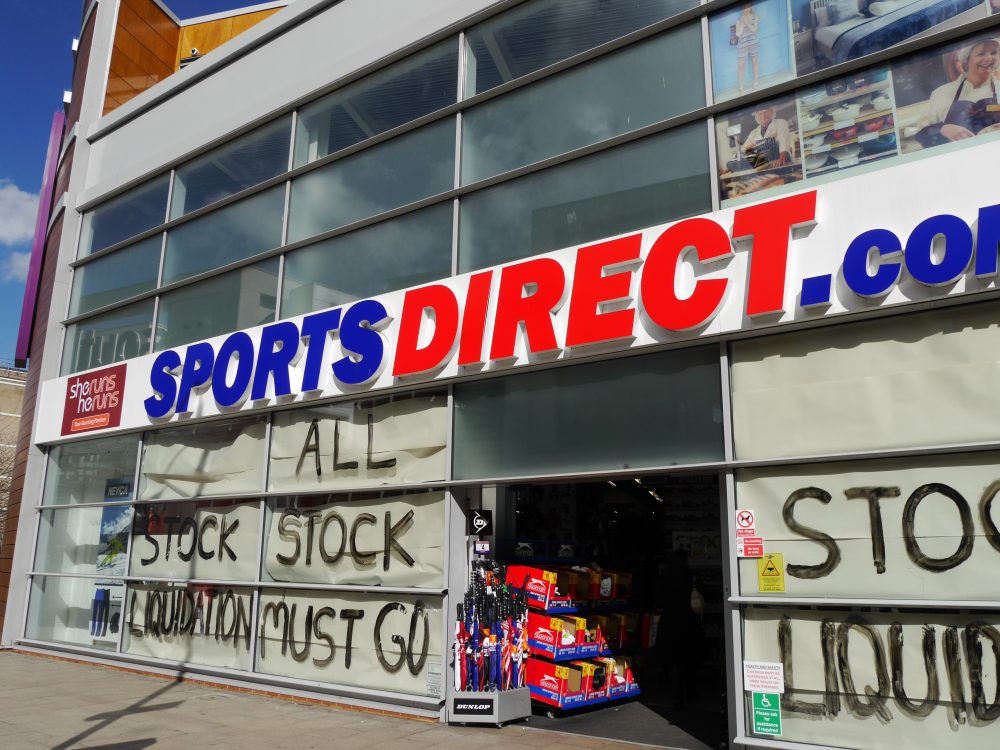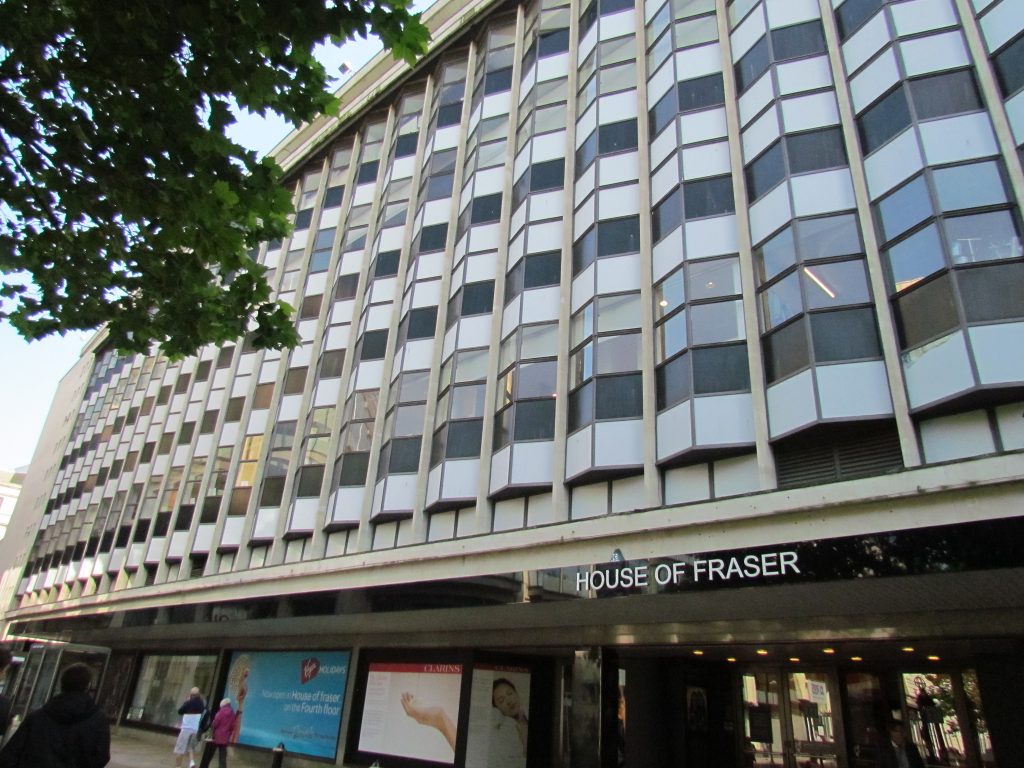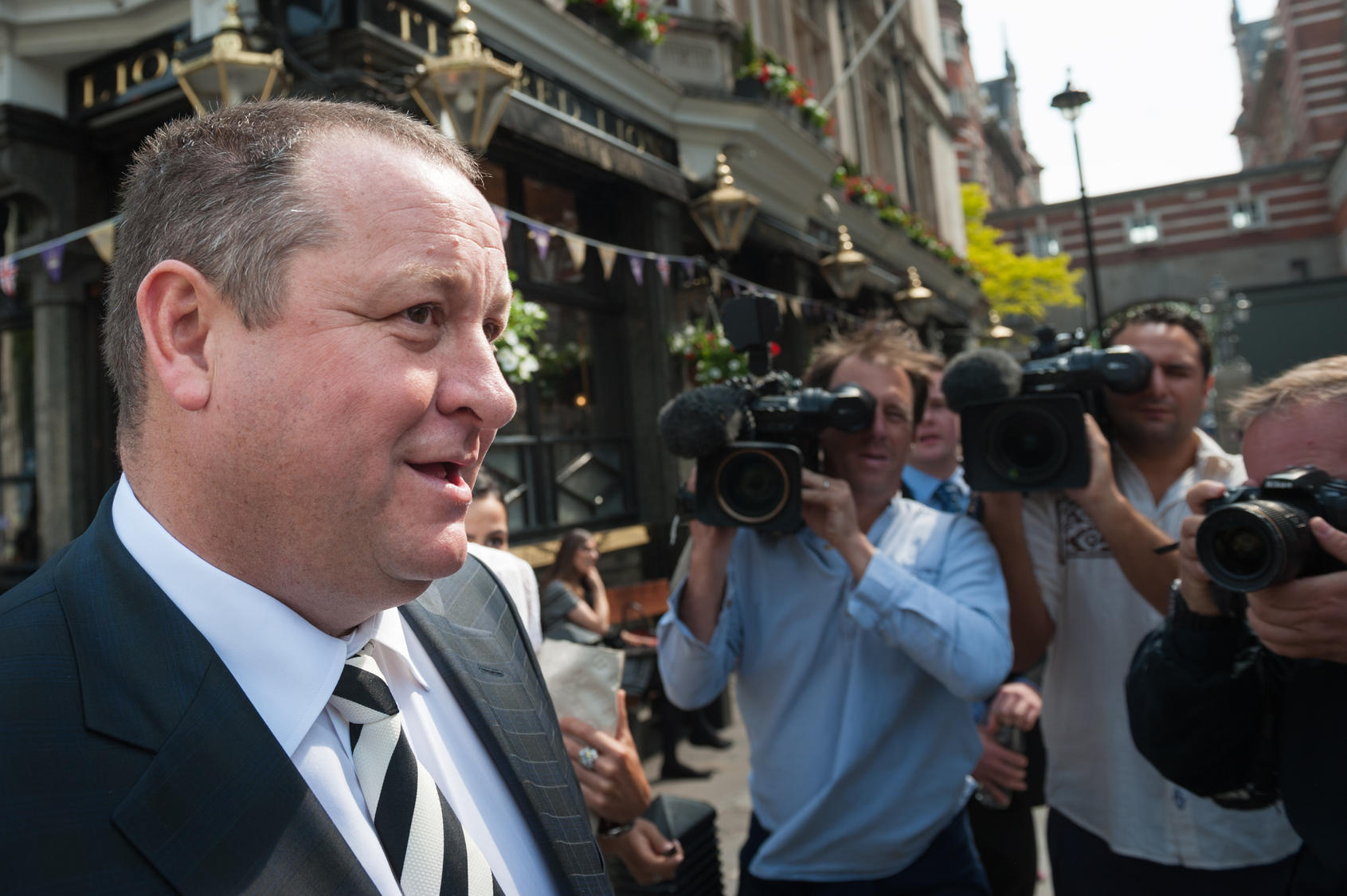Sports Direct founder and CEO, Mike Ashley, has agreed on a deal to take over department store chain House of Fraser in a move that’s made him the most important figure on the British high street. But what’s his record on workers’ rights?
Ashley’s agreed to buy House of Fraser from Ernst & Young (the accountancy firm that was appointed on Friday morning as its administrator) for £90 million, fulfilling a long-standing ambition of his to move his retail empire upmarket by acquiring one of Britain’s leading department store chains.
He’s held an 11% stake in the business since 2014, as well as owning close to 30% of its main rival, Debenhams.
The English retail entrepreneur’s probably best known, however, for his interest in the sports market, as the owner of Newcastle United and as the founder of Sports Direct.
The latter role saw him end up in front of a parliamentary inquiry in 2016, after a Guardian investigation revealed “appalling working practices” at the chain, which treated its workers “as commodities rather than as human beings.”
With Ashley now at the helm of another high street giant, here’s a recap of what the inquiry found and how the billionaire businessman vowed to fix it…
‘A Victorian Workhouse’
 Credit: Edward Hands
Credit: Edward Hands
In June 2016, the business, innovation and skills (BIS) select committee took evidence from Sports Direct workers, union representatives and agencies that employed the majority of the 3,000 staff working in the firm’s Derbyshire warehouse. The committee came to several damning conclusions.
Despite initially refusing to give evidence to MPs, Ashley also appeared before the committee, admitting that his company had broken the law by failing to pay staff the national minimum wage. He also confirmed that his company was under investigation by HM Revenue & Customs for breaching the wage law.
READ MORE | Sports Direct: Could Human Rights Have Helped?
BIS chairman Iain Wright said that whistleblowers, parts of the media and a trade union had “shone a light” on “extremely disturbing” practices at Sports Direct.
He continued: “The evidence we heard points to a business whose working practices are closer to that of a Victorian workhouse than that of a modern, reputable high street retailer. For this to occur in the UK in 2016 is a serious indictment of the management at Sports Direct and Mike Ashley, as the face of Sports Direct, must be held accountable for these failings.”
“It seems incredible that Mike Ashley, who visits the Shirebrook warehouse at least once a week, was unaware of these appalling practices. This suggests Mr Ashley was turning a blind eye to conditions at Sports Direct in the interests of maximising profits, or that there are serious corporate governance failings which left him out of the loop in spite of all the evidence.”
The committee reported that
- Sports Direct’s success was “founded on a business model that enables the majority of workers in both the warehouse at Shirebrook and at the shops around the UK to be treated without dignity or respect.”
- Low prices in the chain’s stores came at a cost to workers who were viewed “as commodities rather than as human beings with rights, responsibilities and aspirations.”
- The “six-strikes-and-you’re-out” policy in the warehouse, where workers would be sacked if they receive six black marks over a six-month period, was a “punitive measure, which denigrates the workers at Sports Direct and gives the management unreasonable and excessive powers to discipline or dismiss at will.”
- “No convincing reason” was given as to why Sports Direct maintains a workforce of more than 3,000 warehouse workers on short-term, temporary contracts, “other than to reduce costs and pass responsibility.”
Luke Primarolo, regional officer at Unite, believed that these issues predominantly came from the majority of the workforce “being employed precariously, either through agency or zero-hours contracts.”
He added: “the road to dealing with this has to involve moving the workforce on to fixed-hour, permanent contracts.”
Giving Workers a Voice
 Mike Ashley has agreed a takeover deal of £90 million for House of Fraser. Credit: Ozzy Delaney/Flickr
Mike Ashley has agreed a takeover deal of £90 million for House of Fraser. Credit: Ozzy Delaney/Flickr
The company has since increased pay and changed some working practices to ensure workers are paid at least the minimum. Following the commons report, Sports Direct admitted to a string of failings, and apologised for its working conditions.
The company said it would put a workers’ representative on its board and offer shop staff guaranteed hours instead of zero-hours contracts.
Ashley said he wanted to “give workers a voice at the highest level” and help ensure that all staff were treated with “dignity and respect.”
READ MORE | The Key Laws That Protect Workers’ Rights
In a letter to Sports Direct workers about an internal report, he said: “I have always believed that Sports Direct was built by the great people who work here. I therefore wish to apologise to you on behalf of myself and The Board for the shortcomings that have occurred in our working practices, which have been identified in the report.”
Despite this, the sportswear retailer was believed not to have extended its offer of guaranteed hours for shop employees to more than 4,000 agency workers at its depot in Shirebrook, Derbyshire.
The internal report, overseen by Sports Direct’s lawyers, also included the following pledges:
- Employing a full-time nurse and welfare officer at Shirebrook after unions found there were a large number of ambulance callouts to the site.
- Establishing a confidential system for reporting sexual harassment and training on the issue following claims that female staff were intimidated at Shirebrook.
- Fewer searches of warehouse staff and a reduction in the number of brands staff are banned from wearing in case of product theft, from more than 800 to 30.
- Deductions for clocking on one minute late have been changed from 15 minutes’ worth of pay to five minutes, while if staff leave one minute early, either in stores or the warehouse, this will be ignored.
Under Mike Ashley, Sports Direct has accumulated stakes in a number of other British high street chains, including Debenhams and French Connection.
His take over of House of Fraser now places him at the forefront of Britain’s retail industry once again, and will be closely watched by the industry, eager to see what changes will take place under his stewardship.
Feature Image Credit: Lee Thomas/Alamy







